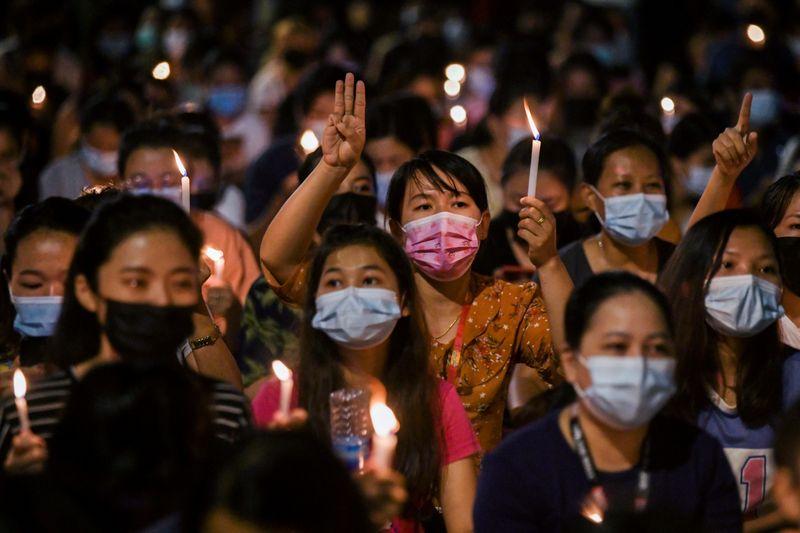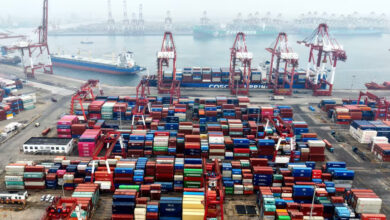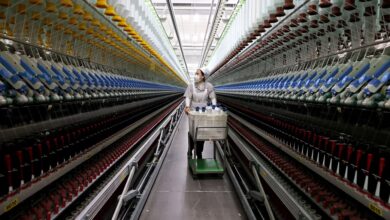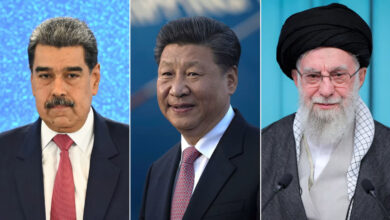
(Reuters) – The families of dozens of people killed in clashes between Myanmar security forces and anti-coup protesters prepared to hold funerals on Tuesday after candle-lit vigils overnight in defiance of a curfew.
Security forces shot dead at least 20 people on Monday after 74 killed a day earlier, including many in a suburb of Yangon where Chinese-financed factories were torched, according to advocacy group the Assistance Association for Political Prisoners (AAPP).
In further violence overnight, a medical worker in the Dawbon area of Yangon said one person died and six were injured when security forces broke up a protest.
“We had to flee…because they threatened if we didn’t leave the body they would shoot us,” the medic, who declined to be identified, said by telephone, referring to the person killed.
U.N. Secretary-General Antonio Guterres was appalled by the escalating violence at the hands of the military and called on the international community to help end the repression, his spokesman said.
Supporters of detained elected leader Aung San Suu Kyi have shown no signs of backing down in the face of growing violence, with Sunday the bloodiest day since a military coup on Feb. 1.
A total of 183 people have been killed by security forces in the weeks of protests against the coup and the casualties were rising drastically, the AAPP said.
A junta spokesman did not answer calls to seek comment and Reuters could not independently confirm all the casualties.
People held up pictures of Suu Kyi and called for an end to the repression during a small protest in the southern town of Dawei on Tuesday, the Dawei Watch media outlet reported. There was no report of violence.
Candle-lit vigils were held in parts of Yangon and Mandalay and some other towns, according to media reports and photographs on social media.
Funerals of dead protesters were set to take place on Tuesday in Yangon and elsewhere. Some families told media the security forces had seized the bodies of loved ones but they would still hold a funeral.
MARTIAL LAW
State broadcaster MRTV said martial law had been imposed in parts of Yangon, the commercial hub.
The martial law announcement said military commanders in Yangon would take over administration of districts and courts, MRTV said.
The army said it took power after its accusations of fraud in a Nov. 8 election won by Suu Kyi’s National League for Democracy (NLD) were rejected by the electoral commission. It has promised to hold a new election but has not set a date.
The military ruled the former British colony for decades after a 1962 coup and cracked down hard on previous uprisings before beginning a tentative transition to democracy a decade ago. That has now been derailed.
The military has spent decades battling ethnic minority insurgents and has long seen itself as the only institution capable of holding the country together.
Suu Kyi, 75, has been detained since the coup and faces charges such as illegally importing walkie-talkie radios and infringing coronavirus protocols. Last week, the junta accused her of accepting illegal payments but she has yet to be charged with that.
Western countries have called for Suu Kyi’s release and condemned the violence while Asian neighbours have offered to help resolve the crisis, but Myanmar has a long record of rejecting outside intervention.
Anti-China sentiment has risen since the coup, fuelled by Beijing’s muted criticism of the takeover, compared with Western condemnation.
Sunday’s arson attacks against 32 Chinese-invested factories in the Hlaingthaya area of Yangon prompted China’s strongest comments yet on the turmoil in its neighbour, where many people see Beijing as supportive of the coup.
China has urged the military to stop the violence, punish perpetrators of attacks on factories and protect Chinese people and property.
Its Global Times newspaper said the attacks caused damage worth $37 million and injured two Chinese employees.
Japan’s Fast Retailing Co, known for the Uniqlo clothing brand, said two supplier factories in Myanmar had been set on fire.
Social media footage on Tuesday showed what media said was another blaze from a factory in Hlaingthaya.
Migrant workers streamed out of the industrial zone on Tuesday on motorbikes, in taxis and with belongings crammed into pick-up trucks, bound for their home towns, pictures on social media showed.
“My factory was…burnt down and I can’t afford to stay in Yangon without a job…so it’s better to go back,” said a garment factory worker heading to her home in the Bago region, north of Yangon.
Reporting by Reuters Staff; Writing by Ed Davies; Editing by Stephen Coates and Clarence Fernandez
Image: FILE PHOTO: People hold candles as they take part in an anti-coup night protest at Hledan junction in Yangon, Myanmar, March 14, 2021. REUTERS/Stringer




